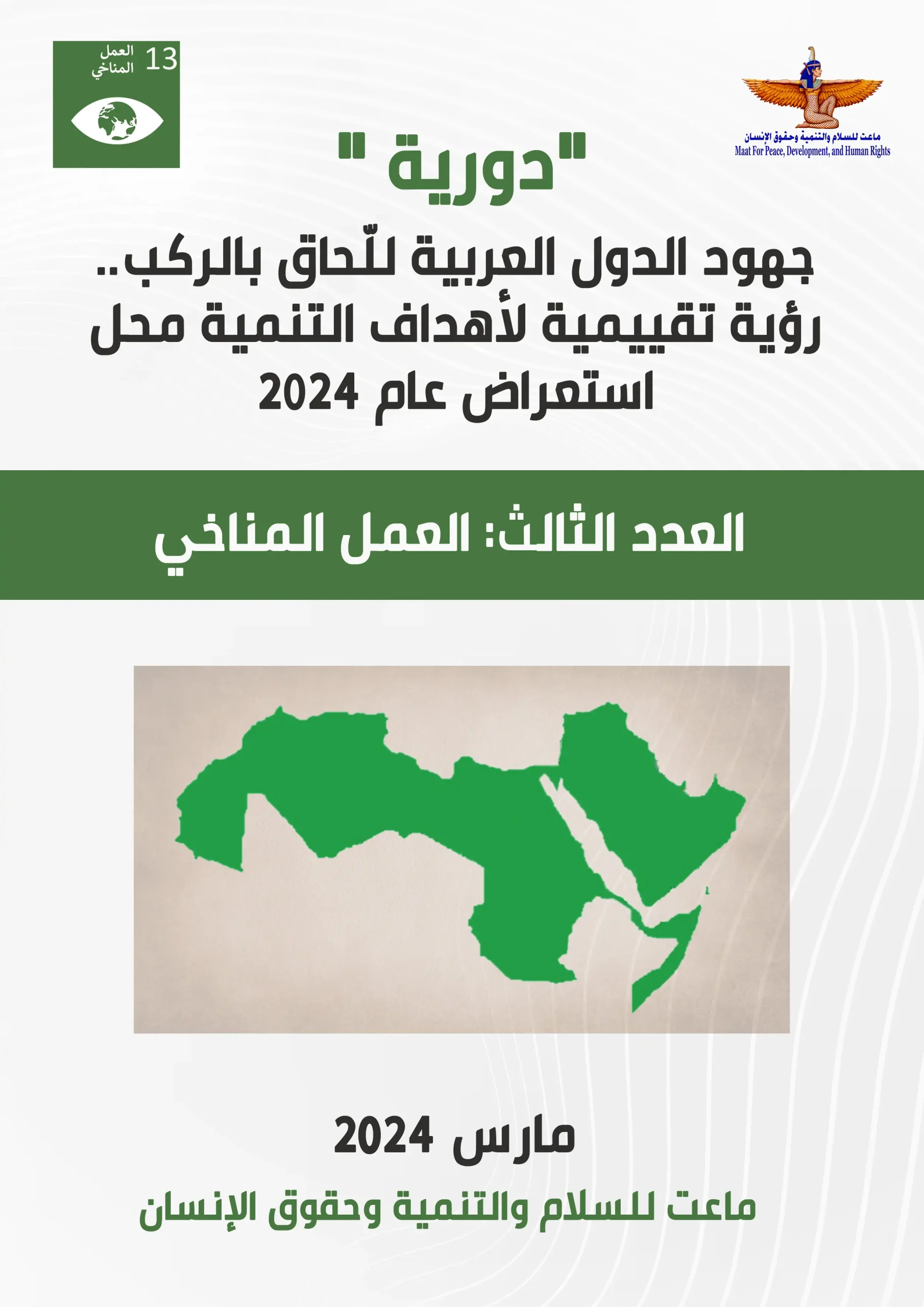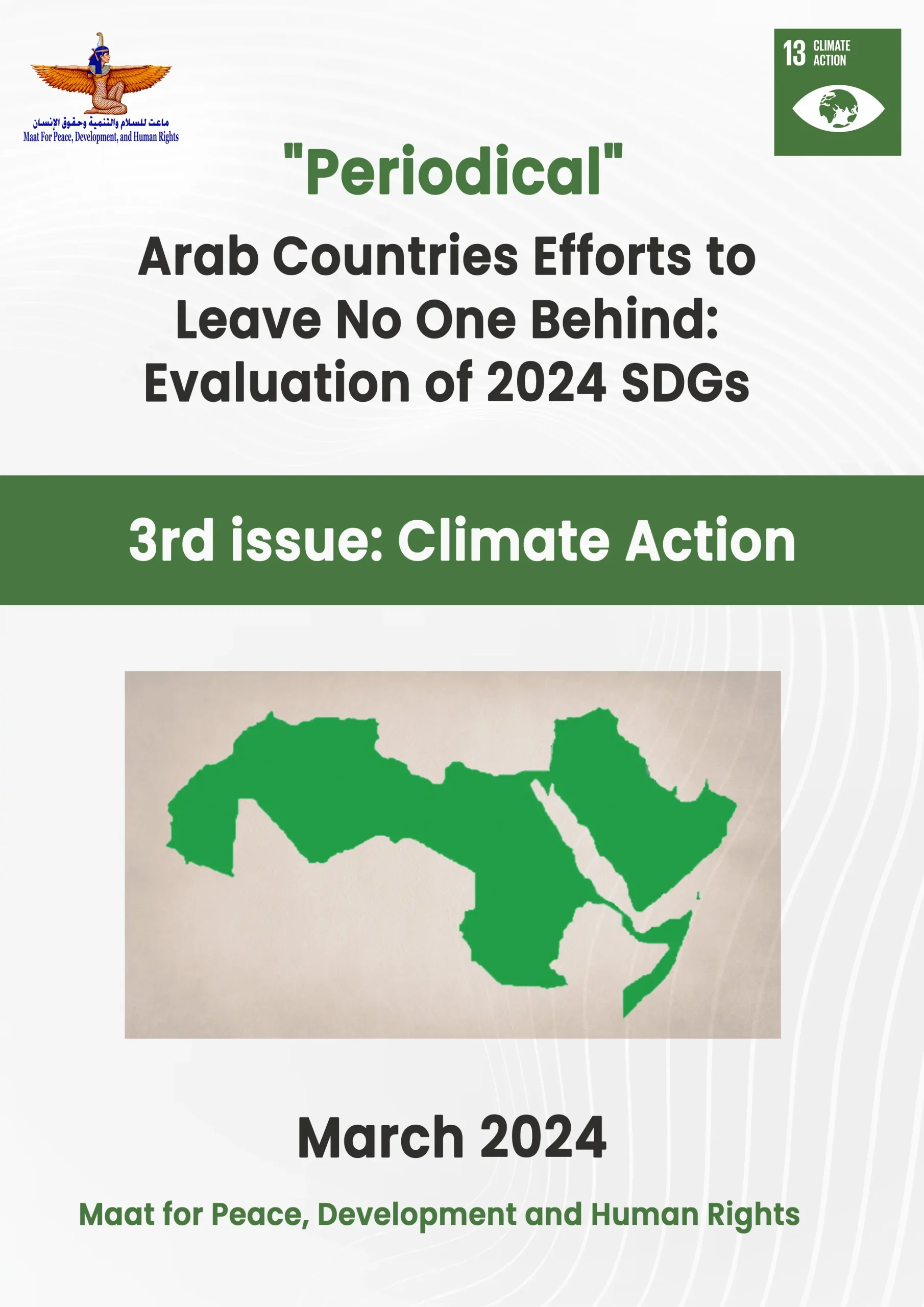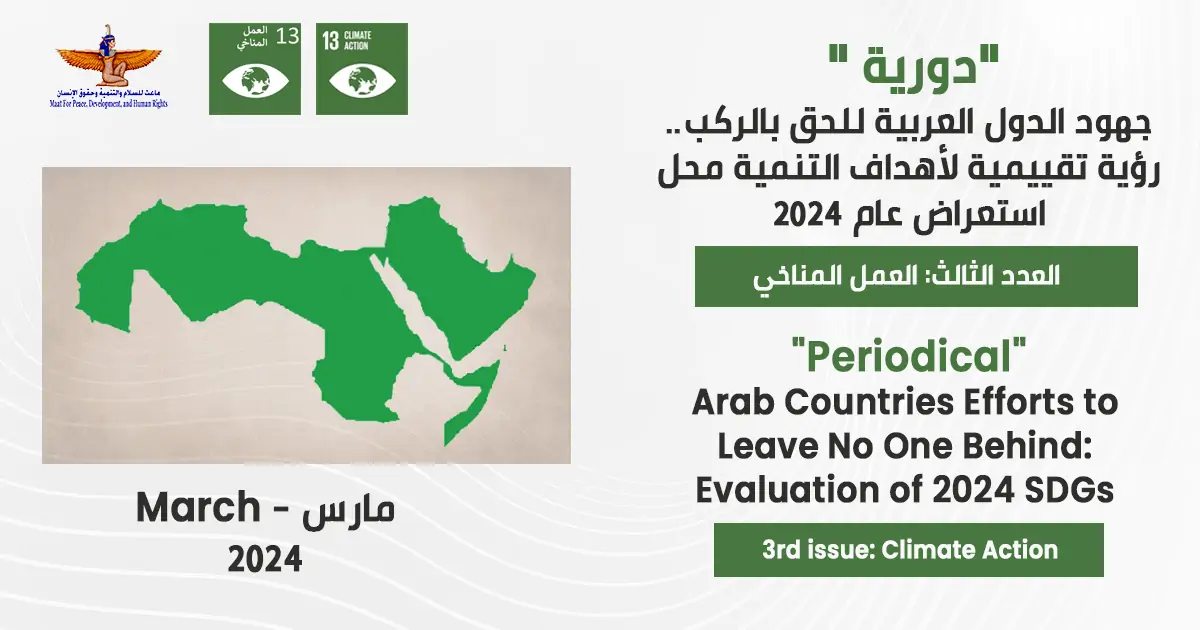Maat: “The achievements of Goal 13 in the Arab region are still far from the right track.”
Okeil: Debt-for-climate swaps are a necessary approach for climate financing.
Gharib: “Arab governments must raise the maximum level of preparedness for climate emergencies.”
Based on national and international efforts to review progress on the sustainable development goals, and in line with the interest of Maat for Peace, Development and Human Rights in the sustainable development goals and its periodic participation in the relevant high-level political forum, Maat unveils its third issue of the research periodical “Arab States' Efforts to Catch Up... An Evaluative Vision of Sustainable Development Goals for Public Review in 2024, entitled “Action Realities between the Objectives’ Entitlements and Challenges’ Pressures.” Maat sheds analytical and evaluative light on how those countries fulfill the requirements and objectives of Goal 13 regionally and nationally.
In this context, Maat confirmed that the requirements for Goal 13 in the Arab region are still far from the right track. Climate change still poses a significant threat, leading to estimated economic losses of around 6% to 14% of the total gross domestic product. This has resulted in over 80 to 100 million people experiencing stress and water scarcity, and 6 to 25 million people being exposed to coastal floods, particularly in Benghazi, Algiers, Qatar, the United Arab Emirates, Tunisia, and Egypt.
In response, Ayman Okeil, the human rights expert and chairman of Maat emphasized that the funding challenge remains the primary obstacle and top concern for climate initiatives in the Arab region. It requires Over 570 billion dollars to enhance the region's capacity to adapt to climate change impacts, and this need has grown since the public debt in the region hit a historic high of 1.4 trillion dollars in 2020.
Okeil also recommended that advanced countries fulfill their financial obligations towards developing countries, including Arab countries, under the slogan of common but diverse commitments. He also highlighted the importance of Arab governments expanding their cooperative and developmental partnerships to mobilize financial resources for climate action, especially through accelerating debt swap programs for climate action.
In the same context, Sayed Gharib, a senior researcher in the Sustainable Development Unit at Maat, explained that climate change is still escalating in the Arab region to the extent of making it uninhabitable by 2075. Therefore, Ghareeb appealed to the governments of the most affected Arab countries by climate change to enhance their preparedness for climate change at all levels, such as water scarcity and high temperatures, sea level rise, increasing fossil fuel activities and industries, and limited resilience and adaptability.
Therefore, Ghareeb appealed to the governments of the Arab countries most affected by climate change, to raise the degree of preparedness for climate change at all levels, especially through updating the legal and legislative framework related to environmental protection; and developing and implementing monitoring, assessment, early warning, and disaster prediction systems.

 |
 |
shortlink: https://maatpeace.org/en/?p=42256












